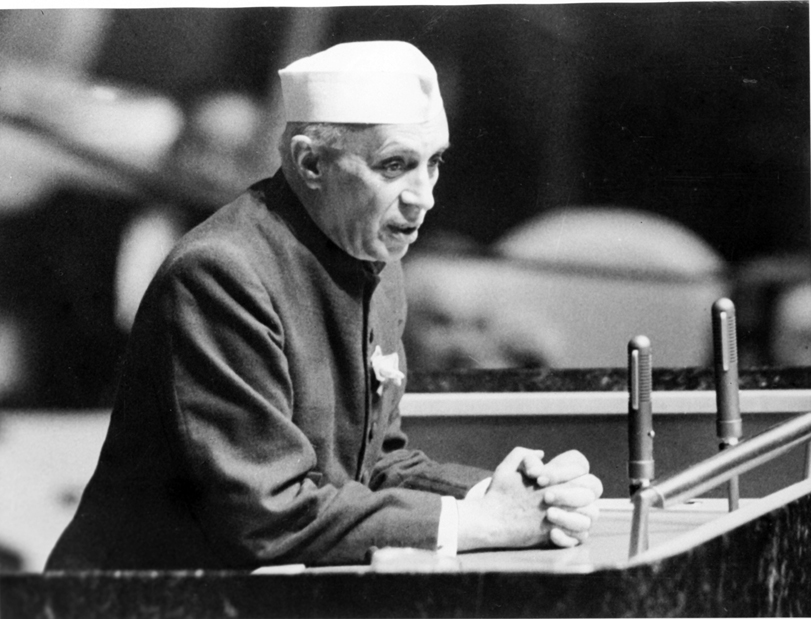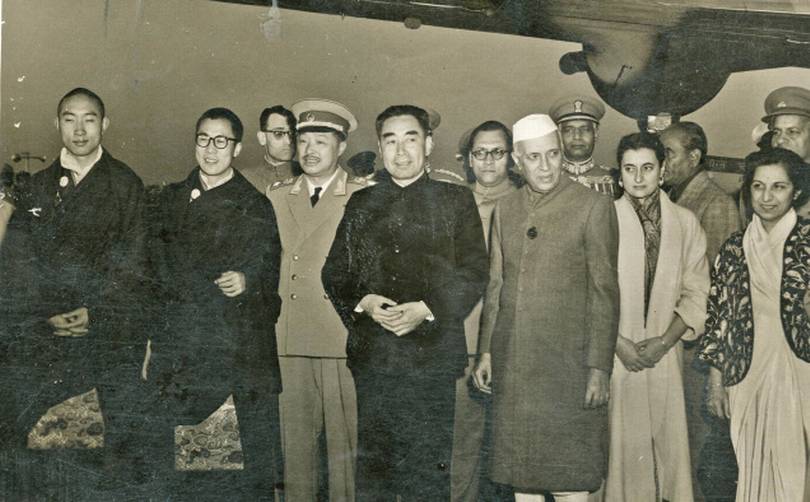Finance Minister Arun Jaitley’s labelling of Jawaharlal Nehru as the ‘Original Sinner’ in a response to China’s recent decision to block India’s bid to designate Masood Azhar as global terrorist, reminds us of the absence of an understanding of historicity in contemporary Indian politics.
Kavya Thomas | The New Leam

Ahead of the upcoming Lok Sabha elections we are seeing the political climate in the nation heat up to what may be referred to as a series of allegations and counter allegations by the ruling and the Opposition parties. These charges and rhetorical jibes that the leaders of the ruling party and the Opposition take at each other reveal the extent of political turmoil and transition that India is going through. When at a recent occasion, the Congress President Rahul Gandhi criticized Prime Minister Narendra Modi ‘hug diplomacy’ when China yet again blocked India’s bid of designating Masood Azhar as a global terrorist. It was in response to Rahul Gandhi’s remarks that Finance Minister Arun Jaitley blamed the Congress and most significantly its most important figure and India’s first Prime Minister Jawaharlal Nehru saying that he preferred China to his own country. He said that it was Nehru who was the original sinner because he deemed it perfect for China to enjoy a permanent membership of the United Nation’s Security Council instead of his own nation.
In response to Rahul Gandhi’s labelling of the PM as weak and afraid of the Chinese government, the Finance Minister said that it was Nehru was had been the ‘original sinner’. He also asserted that the mistake on China and Kashmir were both initially committed by Nehru. The decision to ban Azhar was moved by France, UK, US on February 27th after two weeks of the Pulwama attack but India suffered a setback after China put a hold on the proposal to ban him.
It is in the backdrop of this debate that it becomes important for us to understand the context in which the decisions made by Nehru were taken, the historical location of India at that time and the authenticity that the allegations levelled by the ruling party can be considered to hold in this context. The central allegation made by Arun Jaitley was that Nehru favoured China’s membership in the UN Security Council over that of India.
We have to understand that to make sense of this charge we have to refer to the feeler that was sent by George Washington through the Indian Ambassador to the U.S. in August 1950. The feeler mentions the desire of the U.S. to remove China from the permanent membership of the UN Security Council and possibly have it replaced by India. The allegation that is being charged on the Opposition and especially targeting Nehru, is the outcome of the ruling party’s inability to comprehend the complexity of the international order at that time and the nuanced power politics that was significantly effecting a newly independent nation like India.
The allegation that Nehru refused to take the US’s decision seriously of becoming a permanent member of the UN requires minute understanding. The 1950s were a time when the Cold War was in its early stages and the super-powers were looking at each other ferociously signalling a global catastrophe. China was at that time was considered the USSR’s closest ally, was stopped from taking a permanent membership of the UN SC because of Americas’ opposition. War was unfolding in Korea against the US and its allied troops on one hand and the North Korean forces supported by China and Soviet Union on the other. Nehru’s decision tried to make sure that given this tense situation, India’s safety was not compromised and its autonomy intact. He knew that aiding the US in pushing China out of the UN SC would invite perpetuating war and endanger its newly found freedom. The Korean War reminded him that such a war could escalate into nuclear war, if intelligent decision making was lost. Nuclear deterrence had not yet taken place and the speculations asserted that the US would not hesitate in throwing nuclear bombs in South Asia after it had damaged Hiroshima and Nagasaki.

Nehru knew that India should not aggravate conflict with China or it could be dragged into a Cold War pawn that would put its security to risk. Nehru did not put his own wishful thinking before the national interest and knew that peace could not be restored in India by angering a power as great as China. Moreover, China’s geographical proximity made it mandatory for India to make nuanced choices and not become victim of the urging of outside powers like the U.S. who had their own national interests in mind even when these would be against India’s security interests.
Moreover, the ‘offer’ that was given to India to replace China in the UN SC was not exactly an ‘offer’ but bait to entice India to align with the West and break free of the influence of the Sino-Soviet bloc. Nehru refused the proposal not because he loved China more than his own nation or because he was unsure of India’s credibility but because he was a diploma, a leader who understood how easy it could have been for the US to manipulate and dictate India thereafter, if he had accepted the invitation. Nehru could imagine that the U.S. was seducing India into a partnership that would readily threaten India’s interests. It would have led to enduring enmity with China and also soured India’s bond with the USSR.
It was the Indo-Soviet relationship that immensely helped India during the Bangladesh War (1971). The allegations that the finance minster has put on Nehru need to be scrutinised in the context of India’s world position in the 1950s and not be coloured by present political preferences.














